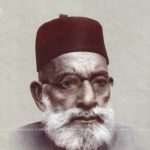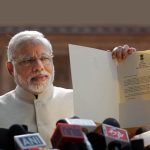The many stories of one man
Renowned journalist and film-maker par excellence Khwaja Ahmad Abbas was born on 7 June in 1914. A hundred years later Dr. Zoya Zaidi takes a look at his short stories.
Khwaja Ahmad Abbas started writing realistic short stories at a time when the dastan or fairy-tale-like stories were written in Urdu.
He wrote his first story, The Sparrows in 1935 when he was just 19 years old. It is a poignant story about a lonely man, abandoned by his family and shunned by society due to his own cruel nature and his subsequent metamorphosis. The Sparrows is reminiscent of Russian writer Anton Chekhov’s short story, Misery. It brought him overnight success and has been translated into many languages of the world.
After The Sparrows, he never looked back.
Another of his short stories Mother and Child is inspired by the Bhopal Gas Tragedy of 1984 and was published after his death in 1987.
In his autobiography, Abbas writes:
I have made it a principle to work on a story like a watchmaker, I want it to be perfect in all its “jewels,” I want it to tick. I never write a story for money … the stories I write (and, incidentally the films I direct and produce) are my creative indulgences. Indeed, I do not write a story till the story itself compels me to write it…
A prominent member of the Progressive Writers’ Movement of India, his stories are mostly inspired from real life when modern India had struggled for independence from the British and later tried to come to terms with the trauma of the Partition, the communal riots that followed and the travails of developing democracy in India.
His writings reflect a man with a vision, a certain worldview and a definite ideology, which remained remarkably consistent throughout his literary career.
A champion of the poor, downtrodden and marginalised sections of society, he wrote extensively about the trials and tribulations of ordinary people. One Thousand Nights on a Bed of Stones, The Locusts, The Three Wheeled Cart, and The Naked Fakir are examples of his deepest concerns.
His compassion for women, their exploitation, oppression, suppression, discrimination and cruelty at the hands of the male- dominated society of our times is evident in short stories suck as The Blue Sari, Pinjra, The New Revenge, Three Women, The Tale of Burnt Stove, The Story of a Bloody Tub, Barah Ghantay, Sylvia and Flowers for her Feet.
Being a secular man, he abhorred communal divide, casteism, the practice of untouchability, obscurantism, shamans and charlatans. The Shiva’s Sword exposes the corrupt practices of patwaris, responsible for allocation of land in the village, the village priest who practices untouchability, moneylenders who ␣eece poor villagers with high interests on money borrowed by them, and landlords, who sexually exploit innocent girls of the village. Narrated in flashback, this is the story of poetic justice, cruelty, insensitivity, corrupt practices of upper caste and the humanism of lower caste chamars.
Terylene Trousers is the story of the dream of a lower caste Harijan to rise above his status in the society by acquiring a pair of terylene trousers.
There are three very significant stories of note on post- Partition trauma. The Sardarji or Death of Shaikh Burhanuddin, Ajanta (both based on real-life experiences) and The Revenge. Each story ends on a note of hope and in a lesson in humanity and secularism.
Abbas’s faith in the goodness of human beings was unshakable. He strongly believed that in the heart of even the most hardened criminals lurks a kind heart. All that Two Hands can Carry, Four Bangles of Gold and The Ballot Box are examples.
Some of his best stories are inspired by great events of modern history of our times, not only at home but abroad as well.
The Black Sun is based on the assassination of Patrice Lumumba. The spirit of Lumumba comes to the UN Assembly a day after his assassination to give witness to his assassination by a firing squad. In this symbolic, surrealistic story narrated in the style of stream of consciousness, Abbas exposes the War of Congo and also discusses all the African nations struggling for independence.
With a firm grip over events happening around the world, he wrote some brilliant stories based on politics of the day.
Abbas’s exposure of corruption in society and his scathing criticism of it, is artfully woven into short stories. In Locust a farmer is able to save his bumper crop from a swarm of locusts but is unable to save money from the locusts of society like the buyer of his crop, the moneylender and the patwari. He is left with barely enough money to survive and postpones his six-year-long dream of buying a gold hansli or choker for his wife till the next crop. In this ironic story full of satirical, humorous moments, Abbas aptly uses the symbol of locusts for corrupt usurpers of the fruits of labour of poor farmers. This brilliantly narrated story remains relevant even 40 years after it was written.
Abbas kept an eye on the superfluous life and values of the film world where good looks take precedence over everything else. His poignant story called Two Faces discloses this side of the glitterati very artfully. A beautiful vamp, with a perfectly chiseled figure is the source of envy of many a heroine. The secret of this vamp’s eternal youth is a topic of discussion in the entire film industry. The writer goes on to unveil the cruel reality behind the pretty face of the protagonist, culminating in a climax full of horror and tragedy.
Abbas experiments with form and content freely and successfully. In Three Wheeled Cart, Bhiku collects the city garbage in his ramshackle three-wheeled cart. Each piece of garbage whether it is a bloody tub, 13 scorched film cans or a burnt stove has a story behind it.
Abbas spent his entire life writing and making films to bring about a change in society so that the common man could realise his quest for freedom and a better tomorrow.
The writer is a medical doctor and grand niece of KA Abbas who is also a poet and passionate about calligraphy and photography.




